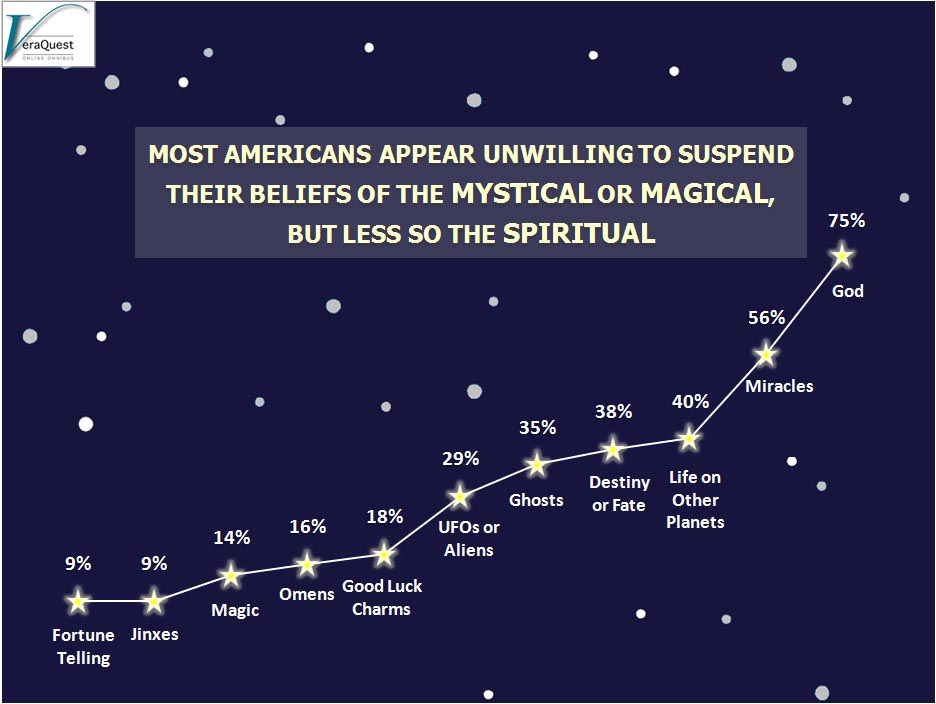Despite taking five semesters of various statistics and probability courses in college, I find it ironic that I still rely on my lucky coin at my weekly poker game. We poker players, many of whom are students of math, are among the most superstitious people or perhaps we just need something or someone to blame when we don’t win. That said, according to most Americans, jinxes and good luck charms don’t work.
And, jinxes and good luck charms are not alone. The majority of us seem to need some good old-fashioned scientific proof – or at the very least, an eye witness or phantom noises, before we can say for sure “we believe” in something. Aside from God and miracles (the more sacred and inspirational items we measured), most Americans appear unwilling to suspend their belief for anything mystical or magical. In fact, everything else we measured was endorsed by less than half of Americans:

But while many of us are skeptical, some things require less or no proof to smaller segments of the population:
- Younger adults are much more likely to suspend their disbelief across the board. Are older adults ages 30+ wiser, more cynical, or just more realistic?
- Paranormal and extraterrestrial activity seems credible to about 30-40% of Americans, but especially those in the west versus the south. Is that eerie or telling?
- Men are more likely to believe in the outer reaches of the universe, including life on other planets (48% vs. 33%) and UFOs/aliens (35% vs. 24%), while women are more likely to believe in destiny (42% vs. 33%), miracles (64% vs. 48%) and God (79% vs. 71%). What part of nature or nurture explains that?
Personally, I believe in five items on the list above. Look in your crystal ball and you will find out which ones.
Leave a Reply